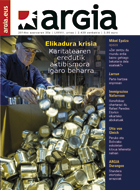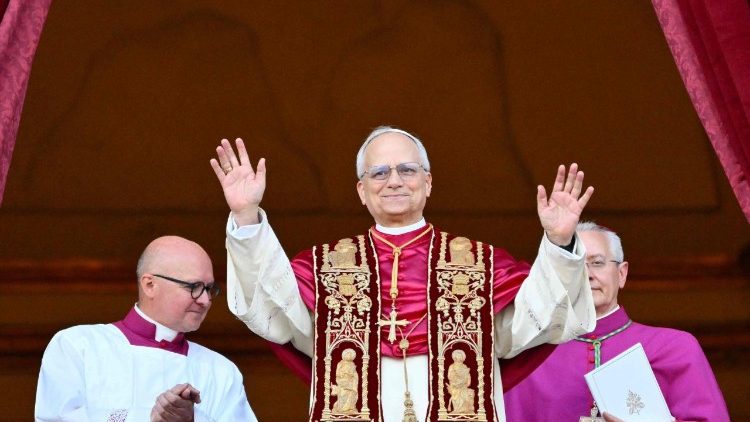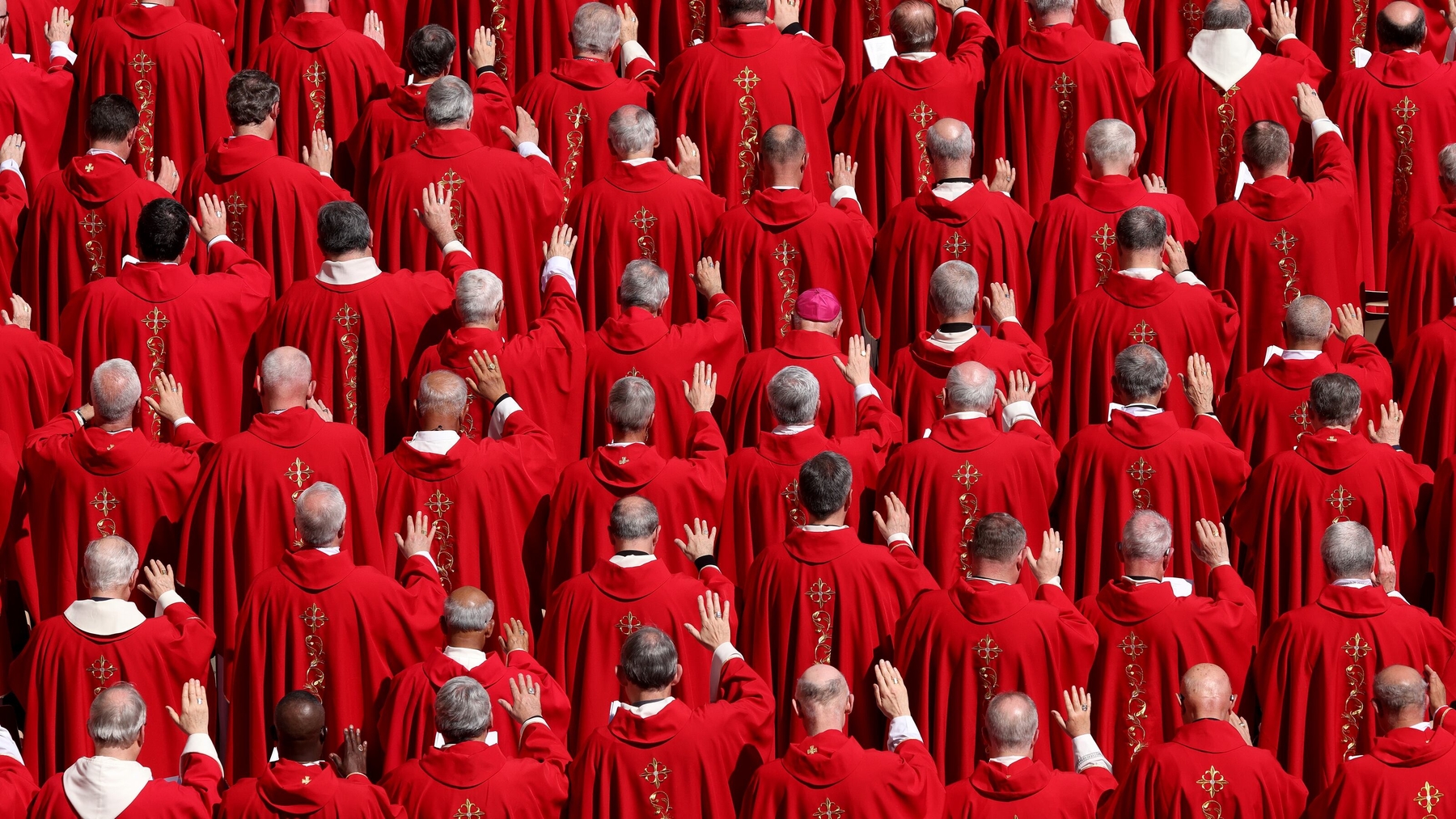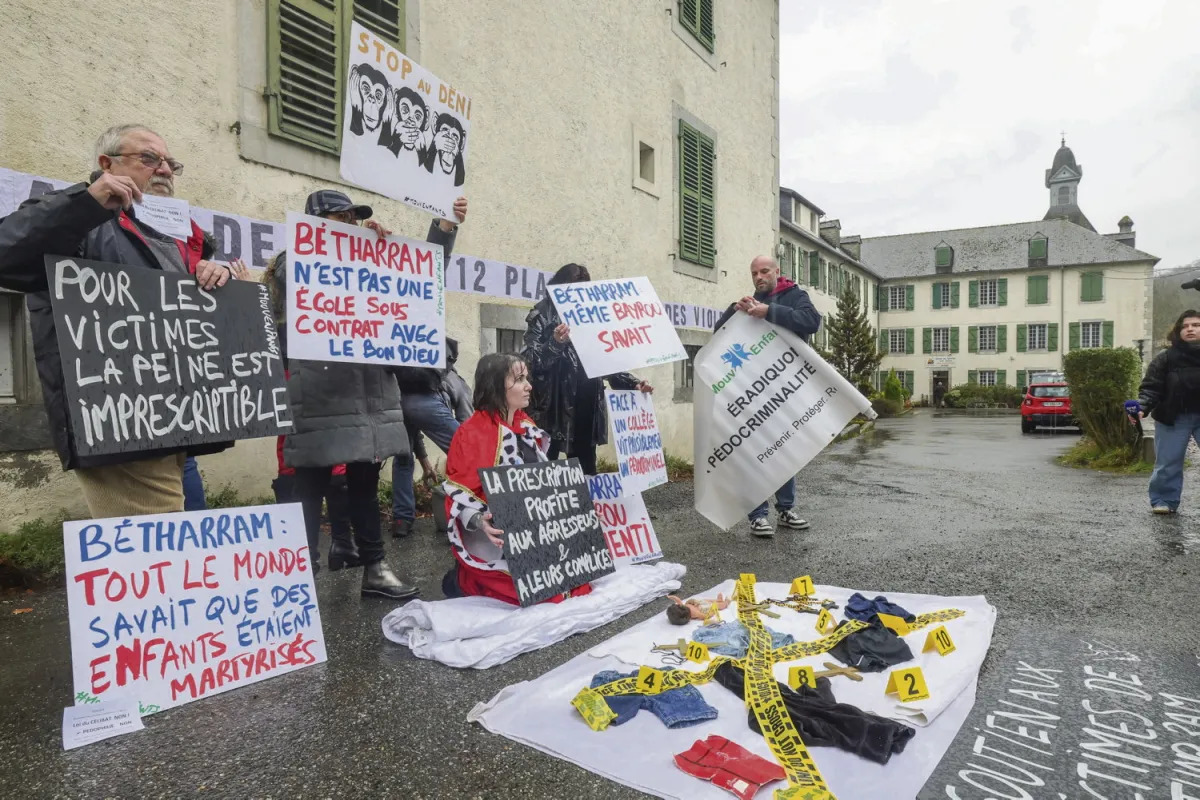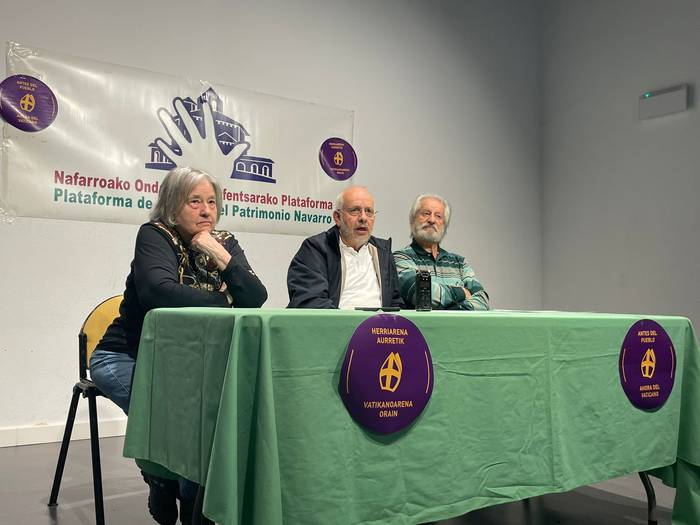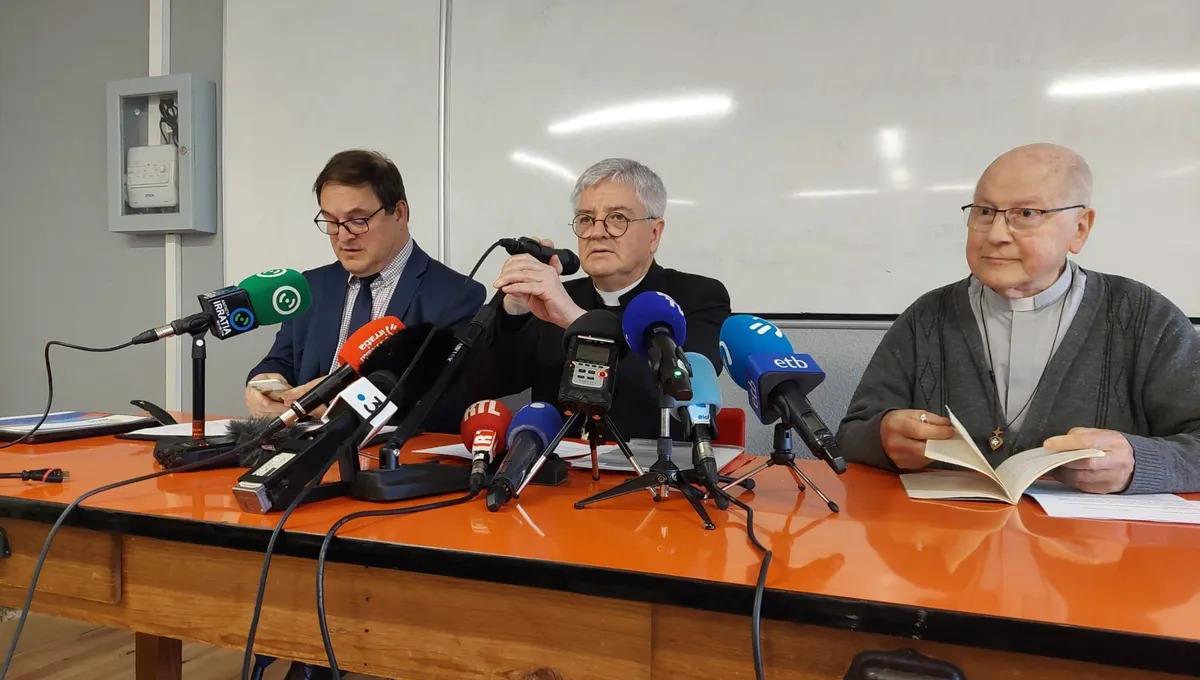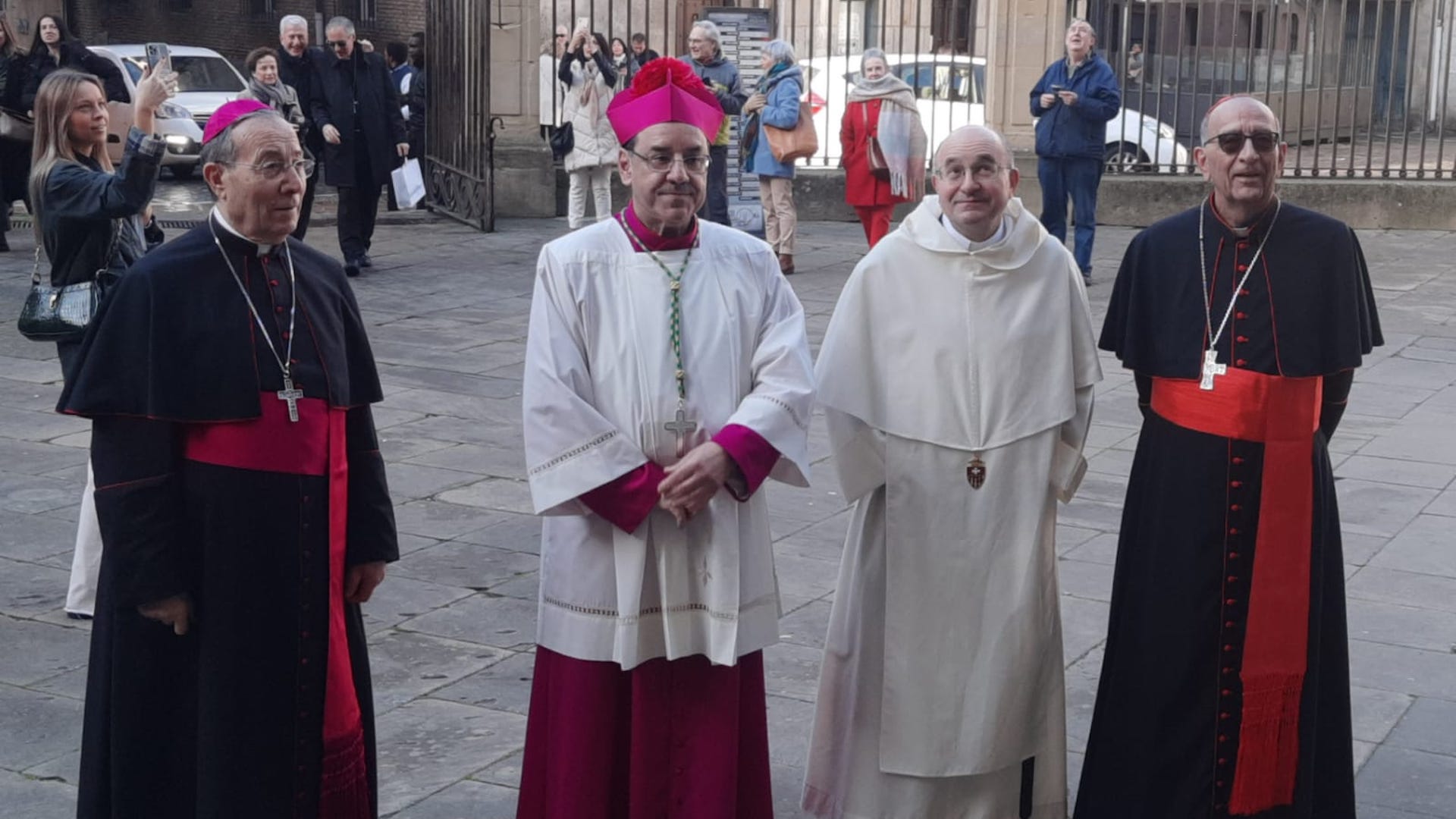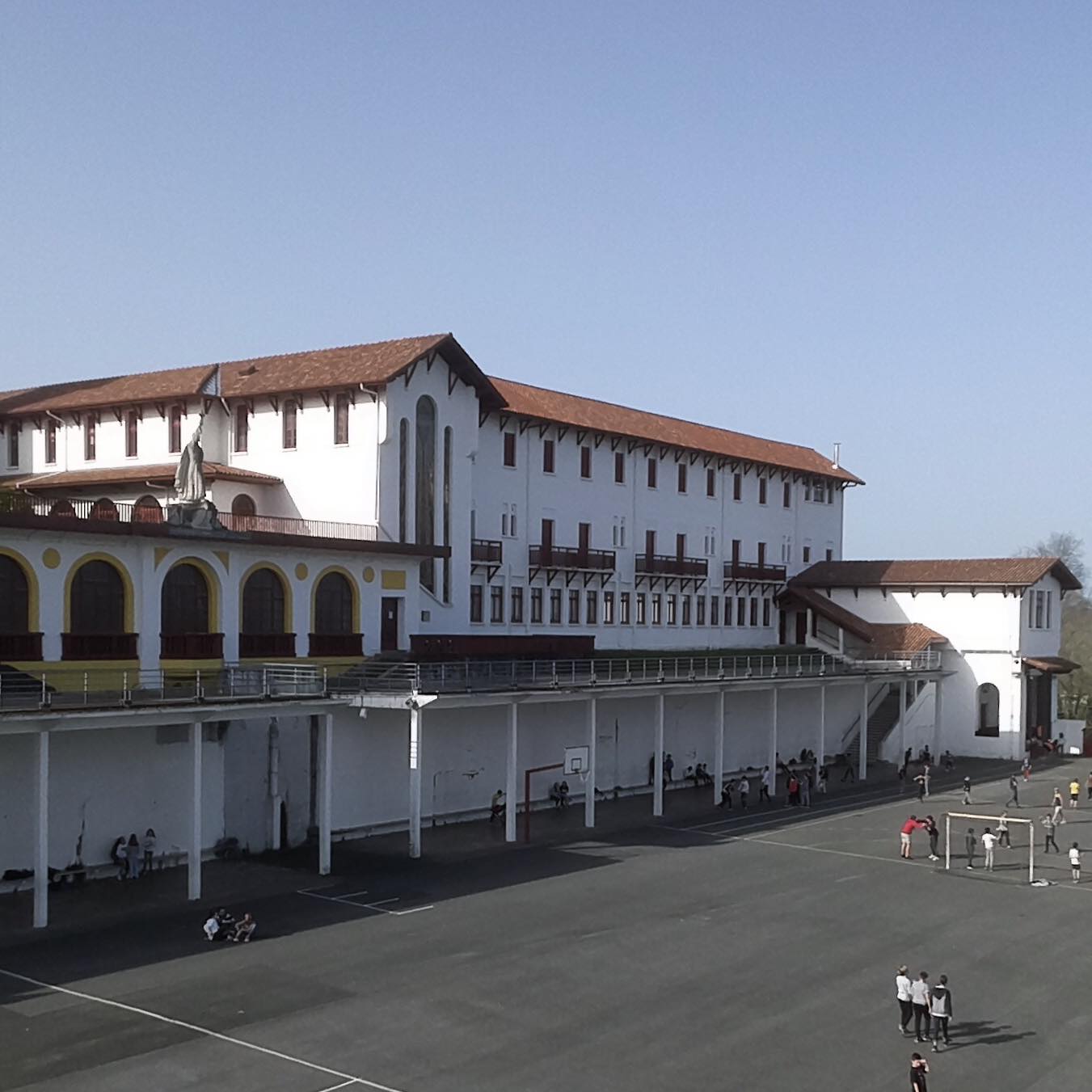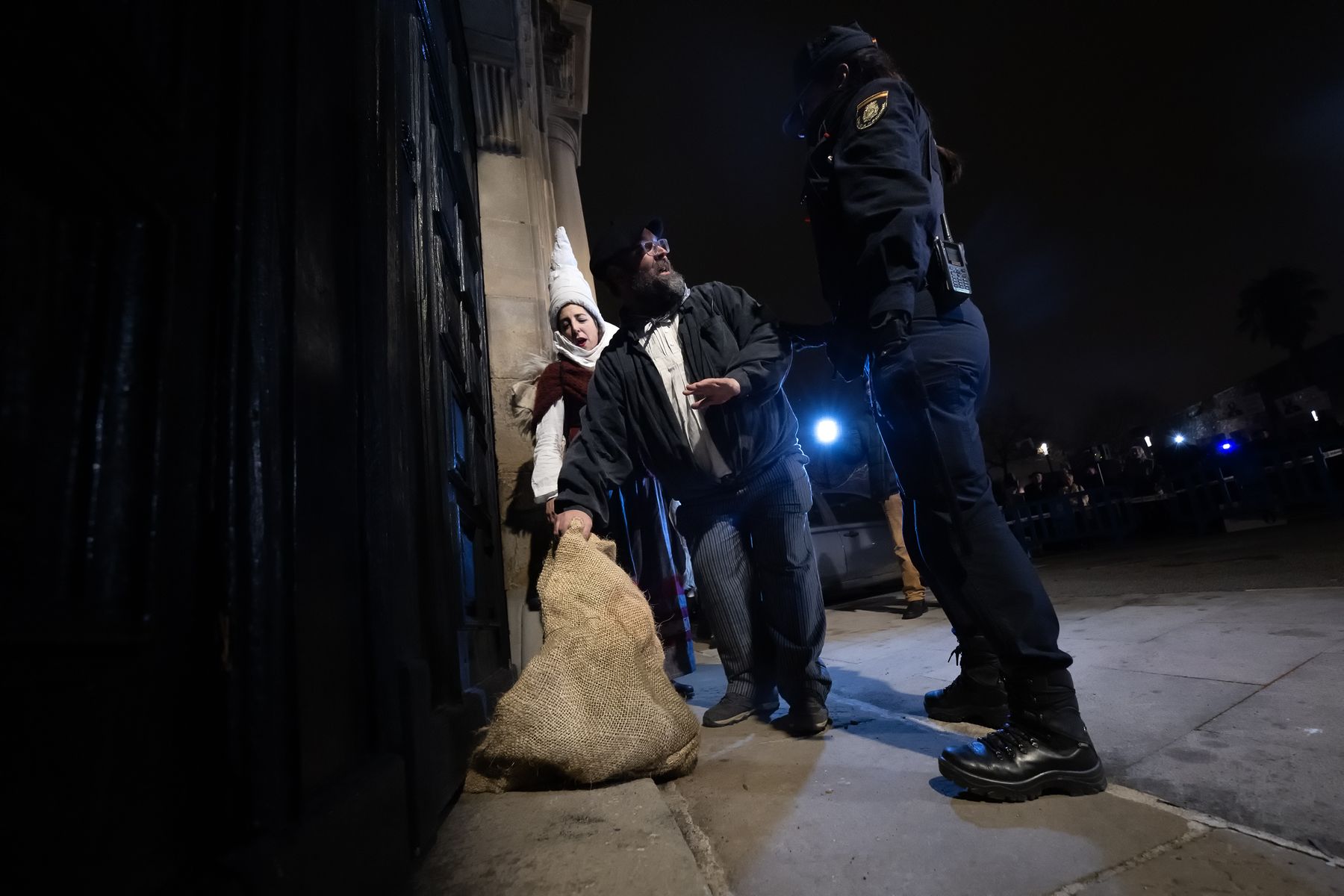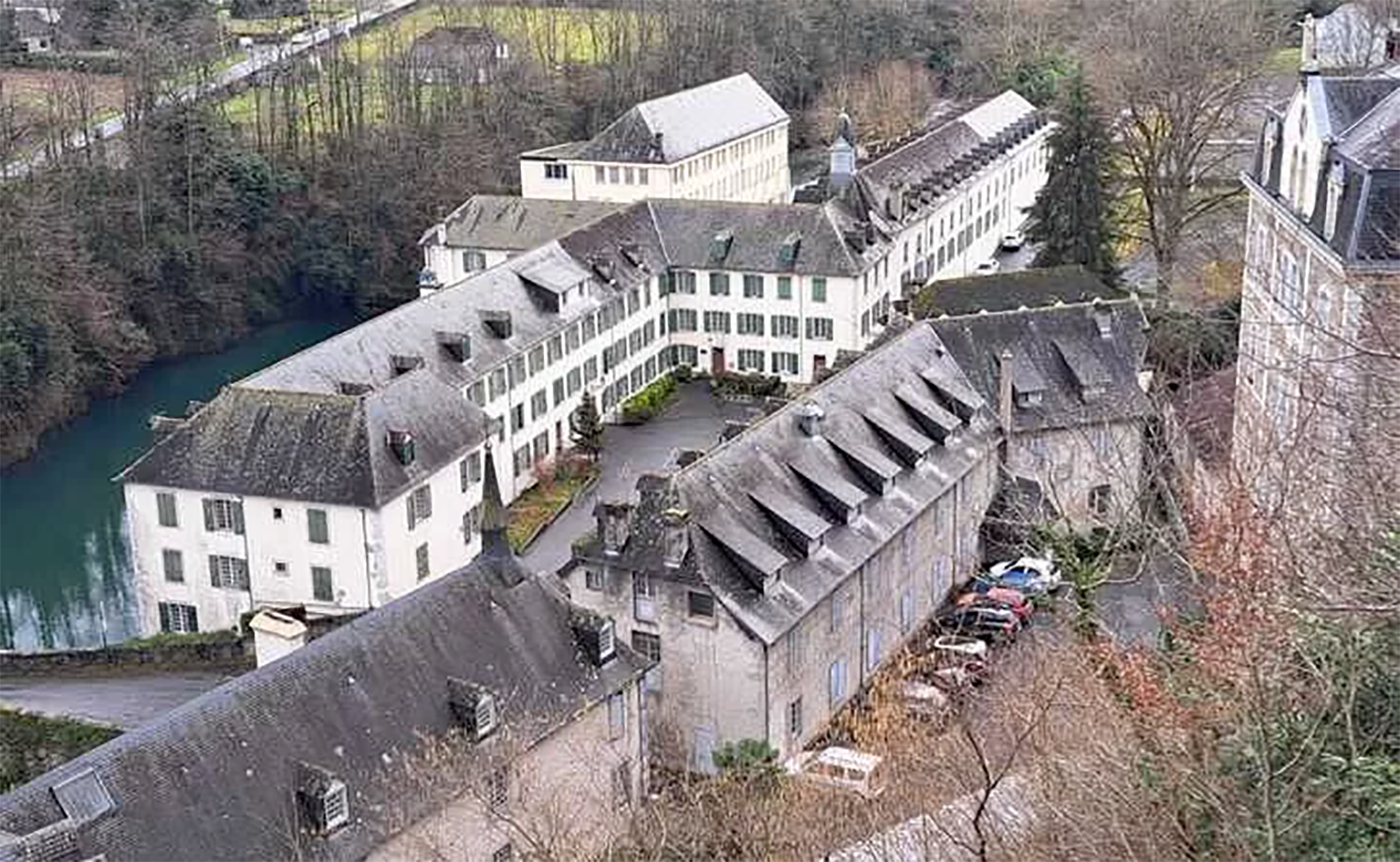"Culture comes from giving the word."
- On behalf of the mother, the daughter and the holy spirit... Amen.

Before you were born, many wars had already taken place.
My parents' two families are refugees from the War of 36. My four parents are buried in the Haltsu Cemetery. I have Biscayan and Navarra blood from my father, Madrid and Vizcain from my mother. His father, commander of the armies, had been a prisoner and sentenced to death, plunged into the mud of war. That is why I was born in Haltsun, linked to the South by blood and by nature, feeling “seven one” from the first breath. At home, in addition to parents, fugitives, Lekeitio's companions, fishermen... I've always seen everything. For me, the family has always been something that goes beyond the blood. Imagine, the red flag of the Lekeitio brotherhood used earlier to dance the Kaxarranka has been on the fireplace of our house. We have recently returned him to the people. I suspect, however, that these stories are kept in the houses and the people forget them.
You were born the day after World War II, at a time when houses and peoples could not forget.
Since I was young I have heard that the Germans came, that Snow, the largest of the creatures, was forbidden to take the red flag on the fireplace, but I have not spent war time or scarcity. It wasn't a big fortune, but we had a rich popularity tied to agriculture. Cows, hens, a small vineyard -- it was enough for us. What I remember is that we were talking about Lekeitio at home and haltsuero on the street, but we were very happy because the Arrieta priest knew how to welcome the fugitives and integrate ourselves into the village. We have not suffered the marginalization of fugitives. We were refugees, not rejected. We are very well integrated in Haltsun, both as regards the Basque Country, as regards agriculture, as well as on the roads of the Church, and, of course, as regards the Basque identity. I will never forget that two drums and a four-trumpet chalk go through the home-to-house festivities, with the French flag ahead. Before they arrived at our house, however, they left the French flag and entered the ikurrina that the cousin had left on the way. These people have learned about this people thanks to the fugitives. That is why I say that it is not the same to be a refugee in the Basque Country as in Cherbourg. It is true that not everything is yet won, that the people here talk about Spain when they talk about the affairs of the South, but we have had incredible solidarity and help.
How do you value the fugitives' contribution on the road to peace?
The popular and popular character of an era has changed. We are in a plurality, turning the flight into agents of peace, and the last steps they have taken seem to me not only commendable, but admirable. It is not easy to undress the fugitives as they have undressed. With the conviction that the people were going to receive the fruits of ETA’s actions when they have spent their whole lives, it is no small thing to suddenly stop the armed struggle and take the weapons of peace, leaving society sovereignty. We have been oppressed, as people and as people, in the face of this oppression we have also wanted to show violence with weapons, but although we are still oppressed we have been able to break this cultural political logic. This opens up new avenues and alternatives. When have we had such an opportunity? That is very positive for everyone, for society and for those fleeing. Now being a fugitive is not being held prisoner in the heel of posterity, it's not like transporting a grave slab over which the future stands. Despite the hard work of the situation, the rays of hope have revived.
Has the passionate defense of the Basque cause created problems within the Church?
I have often been told that I could make a more beautiful priestly path, that the Basque roots did not allow me to fly to Rome. I have never been a priest to enrich my ecclesiastical career, with citizens, Christians or non-Christians, but to live the Gospel. So, I've always appeared as I am, I've never kept my people in my pocket. I don't understand a healing path outside the village. There's no wealth for me as big as being happy at the place you're in. It's about living content with what you have, not admiring what you lack. I have been in this corner of Zokoa for 30 years, and it seems to me a real event to be a Basque, a Christian and a cure. I do not want to remove one to add the other.
Seeing the authorities of the Church in the Basque Country, surely I would not want to remove one to add the other?
It's no coincidence. Benedict XVI.ak did not take the helm of the boat, and instead of working for himself, he left the command in the hands of Opus Dei and reactionary right-wing Christians. Rome decided that the Church of the Basque Country should be saved as a structure, and to do so, it decided to rigorously mark the identity of the Church. We were accused of not having created vocations from the Basque Church, server of the people, agent of peace and depositary of language and culture, and of having emptied the churches. They didn't realize that the important thing here is not the boat, but the sea. So now we've been touched by resistance. That is why I say that the Church is us, not Rome. No harm than the new pope has brought us light. It says that we can be Euskaldunes and Christians, we can walk down the street with people, we can get divorced, we can unite with homosexuals and whatever... Finally, a little fresh wind, a sign of hope.
Why is religion in France the first argument against homosexual marriage?
It's a pity. Every time I hear our bishop speak out against gay marriage, it hurts and hurts me. I know a multitude of homosexuals, of all kinds, their children have been baptized for a long time and I treat them like everybody else. Who am I to judge if your sex life is right? What is forbidden and what sin should I impose on them? That is ridiculous. In ancient logic, the couple making jokes before getting married is a sinner. What is the point of saying that more than half of the world is a sinner? If the people you love are sinful, turn off the candle and go live on another planet! The oppressive Church of absolute truths is over. There are still some coffers who handle the weapon of fear, but they don't realize that they're killing their head with that weapon. The word has to be free, we have not left Franco to enter another dictatorship. The new communion with the hierarchy should not be born of mere obedience and subordination. We are adults, and if we want a mature Church we must encourage the exchange of opinions with free words. In this case, the fish does not rot by the tail, but by the head.
Do you worry about emptying the churches?
Deblauki says that this is not an intuition, but a sociological fact. What worries me is to see the half-full, half-empty bottle. The eternal nostalgia of some: the one that existed before and now does not exist. However, the fact that the Church does not have an earlier weight does not mean that it has no value. The sacred dignity that gives you strength to rise to when you fall, the values that you work to defend rights, to promote a better society or to be part of peace are beautiful. Politics cannot swallow everything. We people need to spiritually value what happens to us. How do we spiritually live the current Basque Country? That is the question we have on the table. One type of church has failed, but another is emerging: more humble, more humble, but also more real.
The one that existed before and the one that does not exist now. As a fisherman’s Omonian, I thought you were starting to fish.
The former Basque society has been closely linked to agriculture and fisheries. More than the trades, they were cultural symbols. The number of fishermen and boats has gone down a lot, but the name does not do everything. Despite the fact that ports in many towns become marinas and have more love for tourism than for fishing, behaviour, nature, range of values or face-to-face legends are of fishing culture. What would remain in our ports if we took away the fishermen and the fishermen’s culture? Despite the marginalization of the fishing and fishing trade, there is a civilisation responsible for the conservation and development of the marine heritage. Because people want to leave the trade, not the personality.
He's been in this work since 1985.
From the very beginning I have been worried about giving people the floor. It comes from giving the word culture. Culture is to plough the earth and sow the seed, open the heads and free the word. People do not know what wealth there is in the world of fishermen, what solidarity fabric there is. People see boats, before wood, now veneer, but few make the effort to imagine in them men and women of the sea: their life, their livelihood, their relationship with the sea, their worries, their sorrows, their joys ... The fishermen themselves have not worked very hard in this field, and the shortage has spread to society. When we inform shipowners of our concern, “Do the young people here don’t want to go to the sea? We will bring people out!” they told us. It is very important to weigh the economy well in order to be able to make new boats, to create new markets, to obtain new fishing areas, but where are the values? Is Sosa the only objective? Where is the culture? Everyone is willing to simulate their funding for a new boat, but few people are willing to open up humanization avenues. The Basque Government also wants to save fisheries as an economic force, not as a cultural and popular force.
You, however, say that the salvation of the sea will go through the salvation of the fisherman’s trade.
Of course, if the sea is a vegetable garden, the gardeners are the fishermen. The age of pirates who did not care about the future of the sea is over. It is the fisherman who goes out to sea every day, who takes care of the sea. I am one of those who has sailed like a donkey. I've worked as a fisherman and a cook on the boats, and I confess that we only discarded fish on land. We were throwing cans, bottles and trash loaded for the campaign on the sea floor. Young people have made me, young people have made me understand that it was a pig, that the always blue sea did not justify its use as a gigantic landfill. Thanks to these young people, current fishing and the sea look with other eyes at the future.
But does the gardener send in the orchard?
The fisherman is no longer the owner of the sea, his opinion is not the main one. Today, the brotherhood does not make the most important decisions of fishing, the fisherman is trapped in the brow and in order to get out of it he has to show a new identity. The fisherman knows what the sea and the seas are, but the sea is quiet and those who speak by the sea are those who are in the offices, those who have never stepped into the port. In this way, the fisherman must regain his place of gold, not by imposing his opinion, but by demonstrating that he is an essential member of the sea and by emphasising his knowledge and culture. But it's not easy. For the first time in our history, fishing has been imposed on fish farming. What was coming out of the sea was now coming out of aquaculture. This means stifling the market and a more responsible attitude for the fisherman. It is up to him to go out into the sea and bring the fresh and good fish he can, but above all, to claim that his is more bio than the bio. The fisherman must be placed as a quality guarantee. That's your challenge.
What are the challenges facing a 68-year-old cure?
Stand up, make the challenges of the people and have enough strength and courage to always stay young. I'd like to take a job on unemployment, drive projects like the food bank, weave solidarity networks -- but not just with one-off patches, but changing structures. Where does the crisis come from? Where is misery? Go to the roots and try to change things. It is clear that society operates inadequately. Everyone or nobody, but that's not the case. I see the world as a boat and I do not stand, in the name of the crisis, for people thrown overboard the sea to drown in it.
Mikel Epalza. 1946ko otsailaren 14an sortua, Haltsun. 1973an apeztu eta hamahiru urtez egon zen Miarritzeko San Martin parrokian. 1985ean, Itsas misioaren arduradun izendatu zuen apezpikuak, eta geroztik arrantzaleak lagundu ditu itsasoan zein lehorrean. Liburu anitzen egile, elkarte andana baten sortzaile eta partaide, Zokoako (Ziburuko auzoa) apeza da egun.
“Uniformearen gibelean gizon bat zegoela azpimarratu, borroka armatua bukatua dela eta bakegintzan gaudela oroitarazi eta euskal gatazkan alde batean zein bestean hildako guztientzat otoitz egitea eskatu nuen. Ikusten dituzularik jendarmeak heien domina eta gradu guztiekin gudarien alde otoitzean, eta abertzale batzuk hildako polizien alde errezuan... Hori ezinezkoa zen orain bost urte. Orain posible da. Zergatik ez du Elizak hori bultzatu behar?”.
Frantziskok "Franciscomanía" zeinuarekin hasi zuen bere Aitasantutza. Fenomeno soziologiko horri esker, Vatikanoko boterearen zirrikituak aldez aurretik ezagutzen ez zituen gaztetasunaren ikono eta Elizako aldaketa-haizeen intsuflatzaile bihurtu zen.
Era berean,... [+]
Prentsaurrekoa eskaini dute ostegun honetan Marc Aillet Baionako apezpikuak, elizbarrutiko hezkuntza katolikoko zuzendari Vincent Destaisek eta Betharramgo biktimen entzuteko egiturako partaideetarikoa den Laurent Bacho apaizak. Hitza hartzera zihoazela, momentua moztu die... [+]
Elizak 23 kasu ditu onarturik Nafarroa Garaian. Haiek "ekonomikoki, psikologikoki eta espiritualki laguntzeko" konpromisoa adierazi du Iruñeko artzapezpikuak.
Lestelle-Betharramgo (Biarno) ikastetxe katolikoko indarkeria eta bortxaketa kasuen salaketek beste ikastetxe katoliko batzuen gainean jarri du fokua. Ipar Euskal Herriari dagokionez, Uztaritzeko San Frantses Xabier kolegioan pairaturiko indarkeria kasuak azaleratu dira... [+]









